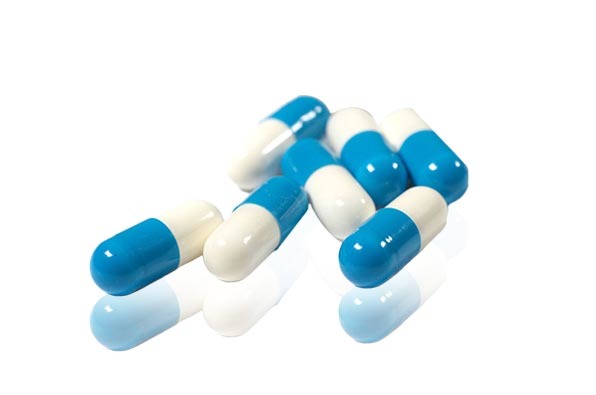News center
Why Hard Shell Gelatin Capsules Are Essential for Effective Drug Delivery
Release time:
2024-09-08
Why Hard Shell Gelatin Capsules Are Essential for Effective Drug Delivery
Table of Contents
1. Introduction to Hard Shell Gelatin Capsules
2. The Importance of Drug Delivery Systems
3. Advantages of Hard Shell Gelatin Capsules
3.1 Improved Bioavailability
3.2 Enhanced Stability and Shelf Life
3.3 Patient Compliance and Acceptance
4. The Manufacturing Process of Hard Shell Gelatin Capsules
4.1 Sourcing Raw Materials
4.2 Gelatin Production
4.3 Capsule Formation Techniques
5. Applications of Hard Shell Gelatin Capsules in Medicine
6. Challenges Facing Hard Shell Gelatin Capsules
7. Future Trends in Capsule Technology
8. Conclusion
9. FAQs
1. Introduction to Hard Shell Gelatin Capsules
Hard shell gelatin capsules have revolutionized the way medications are delivered. As an essential component of pharmaceutical formulations, these capsules serve as a protective layer for the active ingredients within, ensuring their stability and efficacy. The advancement of capsule technology has made them a preferred choice for both manufacturers and patients alike. Understanding their significance in effective drug delivery is crucial for anyone involved in the healthcare industry.
2. The Importance of Drug Delivery Systems
Drug delivery systems are critical in determining how well a medication performs in the human body. The right delivery method can greatly enhance a drug's effectiveness, bioavailability, and ultimately, its therapeutic outcome. Hard shell gelatin capsules play an indispensable role in this system by providing a reliable mechanism for administering a wide variety of drugs. Their design ensures controlled release and targeted delivery, making them a vital tool in modern medicine.
3. Advantages of Hard Shell Gelatin Capsules
When it comes to pharmaceutical applications, hard shell gelatin capsules offer numerous advantages that set them apart from other delivery forms.
3.1 Improved Bioavailability
One of the primary benefits of hard shell gelatin capsules is their ability to improve drug bioavailability. Bioavailability refers to the proportion of a drug that enters the circulation when introduced into the body and is made available for action. Capsules can protect sensitive ingredients from degradation, allowing for optimal absorption. This is particularly important for medications that are poorly soluble or have a short half-life.
3.2 Enhanced Stability and Shelf Life
Gelatin capsules provide an excellent barrier against moisture, light, and air, which can compromise the integrity of active pharmaceutical ingredients (APIs). By encapsulating these ingredients, hard shell capsules enhance their stability and extend their shelf life. This is especially crucial for sensitive compounds that require specific storage conditions.
3.3 Patient Compliance and Acceptance
Patient compliance is a significant factor in the overall success of any treatment regimen. Hard shell gelatin capsules are often preferred by patients due to their smooth texture and easy swallowability, making them more acceptable than tablets. Their aesthetic appeal and ability to mask unpleasant tastes also contribute to improved adherence to prescribed therapies.
4. The Manufacturing Process of Hard Shell Gelatin Capsules
The production of hard shell gelatin capsules involves several intricate steps, each of which is crucial for ensuring the final product's quality and performance.
4.1 Sourcing Raw Materials
The primary raw material for hard shell gelatin capsules is gelatin itself, which is derived from animal collagen. Manufacturers must source high-quality raw materials to maintain the standards required for pharmaceutical applications. The quality of the gelatin directly influences the capsule's performance, including its dissolution rate and mechanical strength.
4.2 Gelatin Production
The process of producing gelatin involves extracting collagen from animal bones or skin and hydrolyzing it to create a gel-like substance. This gelatin is then dried into sheets or granules before being processed into capsules. The purity and quality of gelatin are closely monitored to meet industry regulations and ensure safety.
4.3 Capsule Formation Techniques
There are several techniques used to form hard shell gelatin capsules. The two most common methods are the rotary die process and the aqueous method. In the rotary die process, two sheets of gelatin are rolled and cut into capsule shapes, while the aqueous method involves molding the gelatin mixture into capsule forms. Both methods require precise control of temperature and humidity to ensure capsule integrity.
5. Applications of Hard Shell Gelatin Capsules in Medicine
Hard shell gelatin capsules find applications across various therapeutic areas. They are commonly used in the delivery of:
- **Pharmaceuticals:** Capsules are widely used for both prescription and over-the-counter medications, ranging from antibiotics to vitamins.
- **Nutraceuticals:** The dietary supplement market relies heavily on hard shell capsules for delivering health-promoting compounds effectively.
- **Herbal Products:** Many herbal remedies are encapsulated to improve stability and dosage accuracy.
6. Challenges Facing Hard Shell Gelatin Capsules
Despite their advantages, hard shell gelatin capsules face several challenges that manufacturers must address:
- **Gelling Agents:** The reliance on animal-derived gelatin raises concerns about allergies, dietary restrictions, and sustainability.
- **Moisture Sensitivity:** While they offer protection against moisture, high humidity can still cause capsules to soften or swell, affecting their performance.
- **Regulatory Compliance:** The pharmaceutical industry is highly regulated. Ensuring that gelatin capsules meet stringent safety and quality standards can be complex.
7. Future Trends in Capsule Technology
As the pharmaceutical industry evolves, so too does the technology behind hard shell gelatin capsules. Some promising trends include:
- **Vegetarian and Vegan Alternatives:** The demand for plant-based capsules is on the rise, pushing manufacturers to explore alternatives such as HPMC (hydroxypropyl methylcellulose) capsules.
- **Customized Drug Delivery:** Advances in technology are enabling the development of capsules designed for specific release profiles, such as delayed or controlled release, improving therapeutic outcomes.
- **Personalized Medicine:** As personalized medicine becomes more prevalent, the ability to tailor capsule formulations to individual patient needs will likely gain importance.
8. Conclusion
Hard shell gelatin capsules are indispensable in the field of drug delivery, offering numerous benefits ranging from improved bioavailability to enhanced patient compliance. Their manufacturing process and applications in various therapeutic areas underscore their critical role in modern medicine. As the industry continues to innovate, the use of hard shell gelatin capsules is expected to evolve, addressing challenges and embracing new trends. Understanding their significance helps healthcare professionals provide better patient care and optimize treatment outcomes.
9. FAQs
1. What are hard shell gelatin capsules made of?
The primary component of hard shell gelatin capsules is gelatin, which is derived from animal collagen. Other ingredients may include water and coloring agents.
2. Are there any alternatives to gelatin capsules?
Yes, there are vegetarian alternatives, such as HPMC capsules, which are made from plant-derived materials.
3. How do hard shell gelatin capsules enhance drug delivery?
They improve bioavailability, stability, and patient acceptance, allowing for more effective and efficient drug administration.
4. Can gelatin capsules be used for herbal supplements?
Absolutely! Hard shell gelatin capsules are commonly used to encapsulate herbal products, ensuring accurate dosing and stability.
5. What challenges do manufacturers face with hard shell gelatin capsules?
Manufacturers must address issues related to gelling agents, moisture sensitivity, and regulatory compliance to ensure the quality and safety of their products.
NEWS





